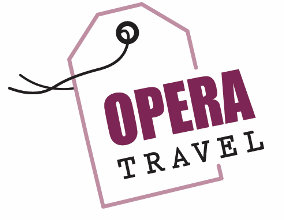Destinations
Discover your next great adventure

Discover Lebanon – The Crossroads of
Cultures
General Information:
- Capital: Beirut
- Area: 10,452 km²
- Population: Approx. 6.8 million
- Currency: Lebanese Pound (LBP)
- Languages: Arabic (French and English are
widely spoken)
Visa Requirements:
Most visitors to Lebanon must:
- Hold a passport valid for at least six
months beyond their stay.
- Have an onward or return ticket.
- Show proof of sufficient funds for their
trip.
- Depending on nationality, a visa may be
required (many nationalities can obtain a visa on arrival).
Visa-Free or Visa-on-Arrival for Citizens
of:
- Many EU, USA, Canada, and Gulf countries
(Visa-free or visa on arrival for stays up to 30 days).
- Check the latest visa policies before
traveling.
About Lebanon:
Lebanon is a country where history,
culture, and natural beauty converge. From its ancient ruins to its vibrant
cities, Lebanon offers travelers a rich tapestry of experiences. Explore the
historic city of Byblos, the ancient ruins of Baalbek, and the lively streets
of Beirut. With a Mediterranean coastline, snow-capped mountains, and
picturesque villages, Lebanon is a land of diversity, blending the old and new.
Climate:
Lebanon enjoys a Mediterranean climate:
- Best Time to Visit: April – October (mild
weather, ideal for sightseeing, and enjoying the beach).
- Cooler Months: November – March (perfect
for winter sports in the mountains).
Main Attractions:
- Beirut: The dynamic capital city, known
for its lively nightlife, historical sites, and bustling markets.
- Baalbek: A UNESCO World Heritage site
housing some of the most impressive Roman ruins in the world, including the
Temple of Jupiter.
- Byblos: One of the oldest continuously
inhabited cities in the world, with ancient ruins, a charming harbor, and
vibrant souks.
- Jeita Grotto: Stunning limestone caves
and one of Lebanon’s natural wonders.
- Mount Lebanon: Known for its ski resorts
in winter, hiking trails, and picturesque villages.
- Tyre: An ancient Phoenician city with
beautiful beaches and ruins that date back to the Roman Empire.
- Sidon: A coastal city known for its
medieval Crusader Castle and ancient port.
- Harissa: A pilgrimage site with a giant
statue of the Virgin Mary, offering stunning views over the Mediterranean.
Transportation:
Lebanon has various transportation options:
- Taxis & Ride-Hailing: Easily
available in Beirut and other cities.
- Buses: Public buses are available, though
they are less reliable for intercity travel.
- Car Rentals: Renting a car is a good
option for exploring Lebanon’s rural areas and the mountains.
- Private Drivers: Popular for day trips to
tourist destinations.
- Domestic Flights: Available for quick access to destinations
like Tripoli and other cities.
Must-Try Food & Drinks:
- Hummus: A creamy dip made from chickpeas,
tahini, and olive oil.
- Tabbouleh: A fresh salad made from
parsley, tomatoes, onions, and bulgur.
- Kibbeh: A traditional Lebanese dish made
of ground meat (usually lamb or beef) mixed with spices and cracked wheat.
- Manakish: A Lebanese flatbread topped
with za'atar, cheese, or minced meat.
- Fattoush: A vibrant salad with fresh
vegetables, herbs, and crispy pieces of pita bread.
- Baba Ghanoush: A smoky dip made from
roasted eggplant, tahini, and olive oil.
- Shawarma: A popular street food made of
seasoned meat (often lamb or chicken) cooked on a vertical rotisserie and
served in pita bread.
- Baklava: A sweet pastry made of layers of
filo dough filled with nuts and sweet syrup.
- Arak: A traditional Lebanese alcoholic
drink made from aniseed.
- Lebanese Wine: Lebanon has a growing wine
industry, particularly in the Bekaa Valley.
Travel Tips for Lebanon:
1. Visa & Entry: Many nationalities can
obtain a visa on arrival; check if you need to apply in advance.
2. Best Time to Visit: Spring and fall for pleasant weather and beach
activities; winter for skiing in the mountains.
3. Transportation: Renting a car is a great way to explore the
country, but be cautious of local driving conditions.
4. Local Etiquette: Lebanon is a
predominantly Muslim country, but it has a diverse population. Dress modestly
when visiting religious sites.
5. Money: Lebanese Pound (LBP) is the local
currency, but USD is widely accepted in most places.
6. Safety: Lebanon is relatively safe for
tourists, but always stay aware of your surroundings and check travel
advisories.
7. What to Avoid: Avoid political
discussions and be mindful of the sensitive political landscape.
8. Cultural Experiences: Experience the
warmth of Lebanese hospitality, enjoy traditional music and dance, and visit
the many cultural festivals.
Summary:
Lebanon is a country that offers a rich
blend of ancient history, modern attractions, stunning natural landscapes, and
delicious food. Whether you're exploring the vibrant streets of Beirut, hiking
through Mount Lebanon, or relaxing on the Mediterranean coast, Lebanon promises
an unforgettable journey filled with cultural discovery and breathtaking
beauty.
